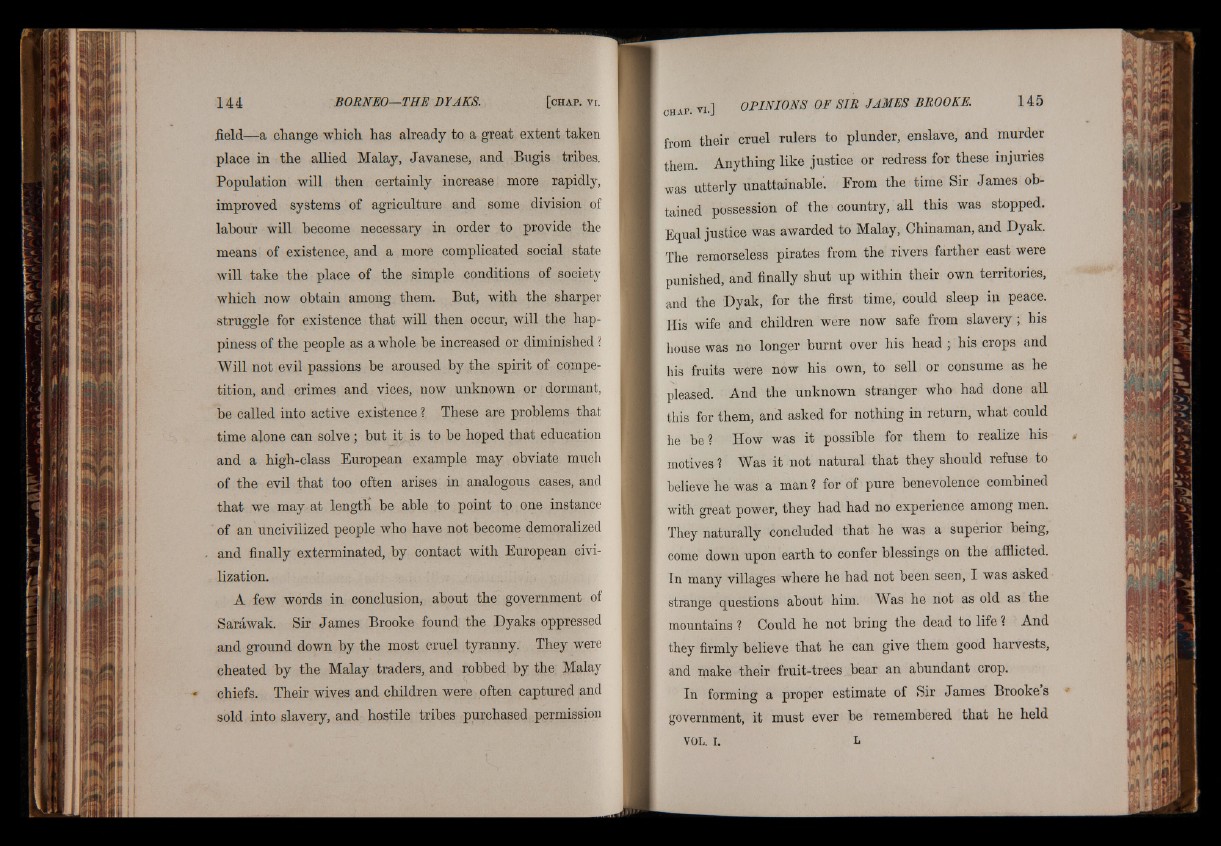
field—a change which has already to a great extent taken
place in the allied Malay, Javanese, and Bugis tribes.
Population will then certainly increase more rapidly,
improved systems of agriculture and some division of
labour will become necessary in order to provide the
means of existence, and a more complicated social state
will take the place of the simple conditions of society
which now obtain among them. But, with the sharper
struggle for existence that will then occur, will the happiness
of the people as a whole be increased or diminished ?
Will not evil passions be aroused by the spirit of competition,
and crimes and vices, now unknown or dormant,
be called into active existence ? These are problems that
time alone can solve; but it, is to be hoped that education
and a high-class European example may obviate much
of the evil that too often arises in analogous cases, and
that we may at lengtli be able to point to one instance
of an uncivilized people who have not become demoralized
and finally exterminated, by contact with European civilization.
A few words in conclusion, about the government of
Sarawak. Sir James Brooke found the Dyaks oppressed
and ground down by the most cruel tyranny. They were
cheated by the Malay traders, and robbed by the Malay
chiefs. Their wives and children were often captured and
sold into slavery, and hostile tribes purchased permission
from their cruel rulers to plunder, enslave, and murder
them. Anything like justice or redress for these injuries
was utterly unattainable. From the time Sir James obtained
possession of the country, all this was stopped.
Equal justice was awarded to Malay, Chinaman, and Dyak.
The remorseless pirates from the rivers farther east were
punished, and finally shut up within their own territories,
and the Dyak, for the first time, could sleep in peace.
His wife and children were now safe from slavery; his
house was no longer burnt over his head ; his crops and
his fruits were now his own, to sell or consume as he
pleased. And the unknown stranger who had done all
this for them, and asked for nothing in return, what could
he be? How was it possible for them to realize his
motives ? Was it not natural that they should refuse to
believe he was a man? for of pure benevolence combined
with great power, they had had no experience among men.
They naturally concluded that he was a superior being,
come down upon earth to confer blessings on the afflicted.
In many villages where he had not been seen, I was asked
strange questions about him. Was he not as old as the
mountains ? Could he not bring the dead to life ? And
they firmly believe that he can give them good harvests,
and make their fruit-trees bear an abundant crop.
In forming a proper estimate of Sir James Brooke s
government, it must ever be remembered that he held